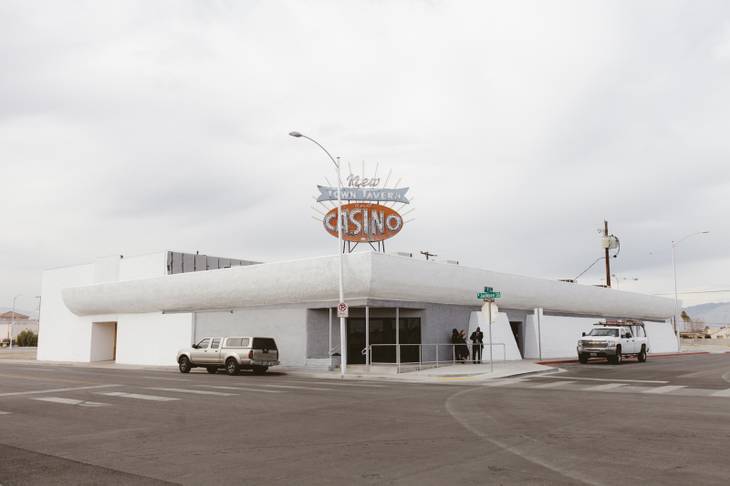A small shuttered casino in Las Vegas’ historic West Las Vegas neighborhood could someday be transformed into a resort that would form the flagship development in a Japanese-style area.
But the ambitious plans for the former New Town Tavern ran into a big speed bump Wednesday when the Nevada Gaming Control Board did not grant initial approval for a gaming license at the property.
After raising concerns largely related to the project’s financing, regulators instead sent the issue back to staff. Accordingly, the board is likely to reconsider the casino’s plans in some form later, although it’s not clear exactly when that might happen.
The former New Town Tavern — which has also gone by the names Ultra New Town Tavern and Town Tavern — at Jackson Avenue and F Street is planned to reopen as Tokyo Casino. It would start off as a modest enterprise with only about 100 slot machines, and it would not be open 24 hours a day, attorney John Maloney said.
If the owners’ vision becomes reality, however, the enterprise would grow substantially from there. Architect Kevin Thistle presented the board with plans to add a 400-room hotel onto the property, and he said a Japanese company was also interested in building a smaller nongaming hotel nearby.
Thistle said additional plans for the neighborhood include two high-rise condominium towers, retail, a parking structure, a 2,000-seat performing arts arena and an overhead gondola system that would connect to downtown Las Vegas. The estimated total cost at this point is upwards of $2 billion, according to Thistle.
The plans were discussed as representatives sought the board’s blessing for Jack Crane — who described himself as a native Nevadan and an experienced gaming executive — to run the casino at first. Owner Steve Hayashi sought permission to observe the operations and learn as much as possible while preparing for full licensure himself.
Maloney said Hayashi owns 89 percent of the limited-liability company that acts as landlord for the Tokyo Casino site, while other financiers own 10 percent and 1 percent, respectively. The ownership structure became a key issue for regulators, who said their agency’s phone calls to other partners went unreturned.
Board members also said they were unable to determine whether Tokyo Casino had adequate funding from a suitable source. Projections provided by the casino showed it would not be able to satisfy bankroll requirements after several months, board member Terry Johnson said.
Crane told the board that he believed the casino would exceed those expectations due to the strong response it had already received from the community and nearby business owners. But regulators indicated that they wanted a more thorough investigation of the finances, including the source of funds.
Johnson said later that he was “pleasantly surprised and impressed” by the vision for a part of Las Vegas he described as a “longtime economically distressed area.” However, because of the other concerns, he said he “simply cannot even remotely conceive of moving forward” with the application.
Board Chairman A.G. Burnett expressed a similar sentiment, saying he would “love to see something along those lines be built,” particularly at the chosen location. Yet he remained confused about financing and said he needed more information.
Should the Tokyo Casino's application eventually move forward, the Nevada Gaming Commission would need to sign off as well.
